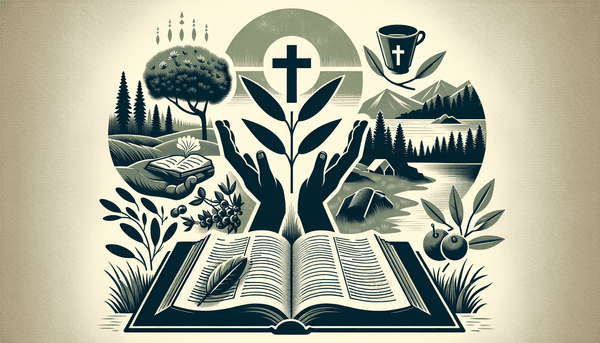The Role and Power of Prayer
Prayer, in its essence, is the soul's conversation with God. It is through prayer that Christians seek the intercession of the Virgin Mary, recognizing her special role as the mother of Jesus and a compassionate advocate. The tradition of addressing her in prayer is not just an act of veneration but an expression of trust in her unique relationship with God. As believers invoke her name, they often recite, 'Cuvine-se cu adevarat sa te fericim pe tine, nascatoare de Dumnezeu', acknowledging her blessedness. In direct communication with God, believers are encouraged to cast their cares upon Him, as Philippians 4:6 advises, through prayer and supplication, and to approach His throne of grace with confidence, as Hebrews 4:16 suggests, to receive mercy and find grace in times of need.
Expressing Affection within Christian Values
Expressions of affection within the Christian faith are deeply rooted in the values of love, unity, and respect. The 'holy kiss,' referenced multiple times in the New Testament, such as in Romans 16:16 and 1 Peter 5:14, serves as a symbol of these values. While cultural interpretations of this gesture may vary, the underlying intent remains the same: to convey love and mutual respect among believers. In contemporary contexts, this expression of affection must be balanced with personal boundaries and cultural sensitivity, ensuring that it aligns with spiritual integrity and the intention to honor one another as brothers and sisters in Christ.
Assurance of Salvation and the Path to Heaven
The assurance of salvation is a cornerstone of Christian belief, offering hope and a clear path to eternal life. Central to this assurance is faith in Jesus Christ as Lord and Savior, as Acts 16:31 declares, 'Believe in the Lord Jesus, and you will be saved.' The journey of faith includes repentance, baptism, and living a life that reflects the transformative power of the Holy Spirit. While good works alone do not secure salvation—as Ephesians 2:8-9 makes clear, salvation is by grace through faith—they are an essential reflection of a true and living faith, demonstrating a life committed to doing God's will, as shown in Matthew 7:21.
Conclusion
In conclusion, the Christian journey is enriched by the practice of prayer, the pursuit of purpose, and the expression of love, all of which draw believers closer to God. Prayer, whether through the intercession of the Virgin Mary or direct communion with the Divine, is a powerful tool for navigating life's challenges, much like the insights found in biblical wisdom. The Scriptures offer guidance for discovering life's meaning and encourage a faithful response to God's calling. As Christians live out their faith, they do so with the assurance of salvation and the promise of heaven, guided by the timeless truths of the Bible.
FAQ
Q: What is the significance of the Virgin Mary in Christian tradition?
A: The Virgin Mary holds a special place in Christian tradition as the mother of Jesus, who is revered for her purity, obedience, and role as Născătoare de Dumnezeu (Mother of God). She is considered an intercessor and a compassionate figure who can mediate on behalf of believers to God.
Q: How can we find purpose and meaning in life according to the Bible?
A: The Bible teaches that life has different seasons and that each season is part of God's plan (Ecclesiastes 3:1). By seeking God's will, aligning our desires with His plans, and living in a way that honors Him, we can find purpose and meaning in life.
Q: What is the holy kiss and how is it practiced today?
A: The holy kiss was a greeting among early Christians that symbolized love and unity (Romans 16:16). Today, the practice may vary by culture, but it is generally seen as an expression of affection and brotherly love within Christian communities, adapted to respect personal and cultural boundaries.
Q: What is the difference between praying to Jesus and God the Father?
A: Praying to God the Father is typically done following the model of the Lord's Prayer, while praying in the name of Jesus acknowledges His role as mediator and intercessor. Both forms of prayer are integral to Christian worship and reflect the relationship within the Trinity.






